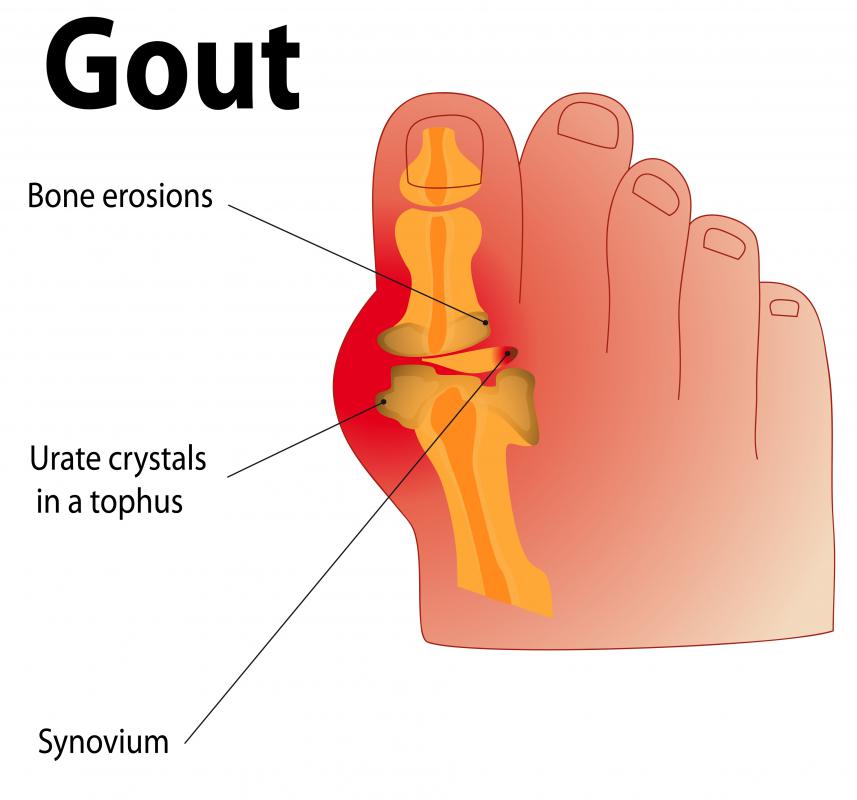At WiseGEEK, we're committed to delivering accurate, trustworthy information. Our expert-authored content is rigorously fact-checked and sourced from credible authorities. Discover how we uphold the highest standards in providing you with reliable knowledge.
What is Malabsorption Syndrome?
Malabsorption syndrome is defined as the body’s inability to absorb the vitamins, minerals, and other nutrients it needs from food. Nutritional deficiencies may be experienced by an individual with malabsorption syndrome, even if the diet is healthy or nutritional supplements are taken. The disorder stems from impaired digestion, or from the inability to absorb nutrients into the bloodstream from the small intestine.
Malabsorption syndrome symptoms include abdominal pain, gas, bloating and diarrhea, fatigue, muscle cramps, dry skin, thinning hair, weight loss, vision difficulties, mental problems such as an inability to concentrate and depression. The most common symptoms are a combination of weight loss, diarrhea, and anemia, a condition in which the red blood cell count is lower than normal. In some cases, cravings for high and empty calorie foods are frequent, due to the body’s need for more nutrients.

There are many factors that can lead to the development of malabsorption syndrome, including food allergies, a diet low in B vitamins that are needed to produce digestive enzymes, and diseases of the gallbladder, liver, or pancreas. These diseases can result in a lack of bile and other enzymes needed for proper digestion and nutrient absorption. In addition, some cases of malabsorption syndrome are caused by damage to the intestinal walls. This can prevent nutrients from being absorbed into the bloodstream, even if the food has been properly digested.

Other causes of malabsorption syndrome include excess mucus covering the intestinal lining, often caused by a diet high in processed and refined foods, a lack of beneficial intestinal flora, and the use of some prescription medications. These drugs include certain antibiotics, and medications for gout and high cholesterol. A physician should be consulted if there is concern of malabsorption syndrome caused by medication. People suffering from AIDS are also prone to develop the syndrome, as they often experience an overgrowth of yeast in the digestive tract that prevents nutrient absorption.

Malabsorption syndrome can be prevented and reversed, usually with a change in diet. Eating foods high in carbohydrates and low in fat, such as brown rice, millet, and oatmeal is recommended. Large meals are discouraged, since they place too much stress on the digestive system at one time. Instead, eating several small meals throughout the day is suggested.

Cutting out meat and other acidic foods may also have a positive impact on digestion and help in reversing malabsorption syndrome. Taking laxatives, excessive alcohol, or antacids on a regular basis can contribute to the problem, as they cause damage to the intestinal tract. Excluding these products from the diet is necessary, so that the body can heal and begin absorbing the nutrients it needs again.
AS FEATURED ON:
AS FEATURED ON:















Discuss this Article
Post your comments